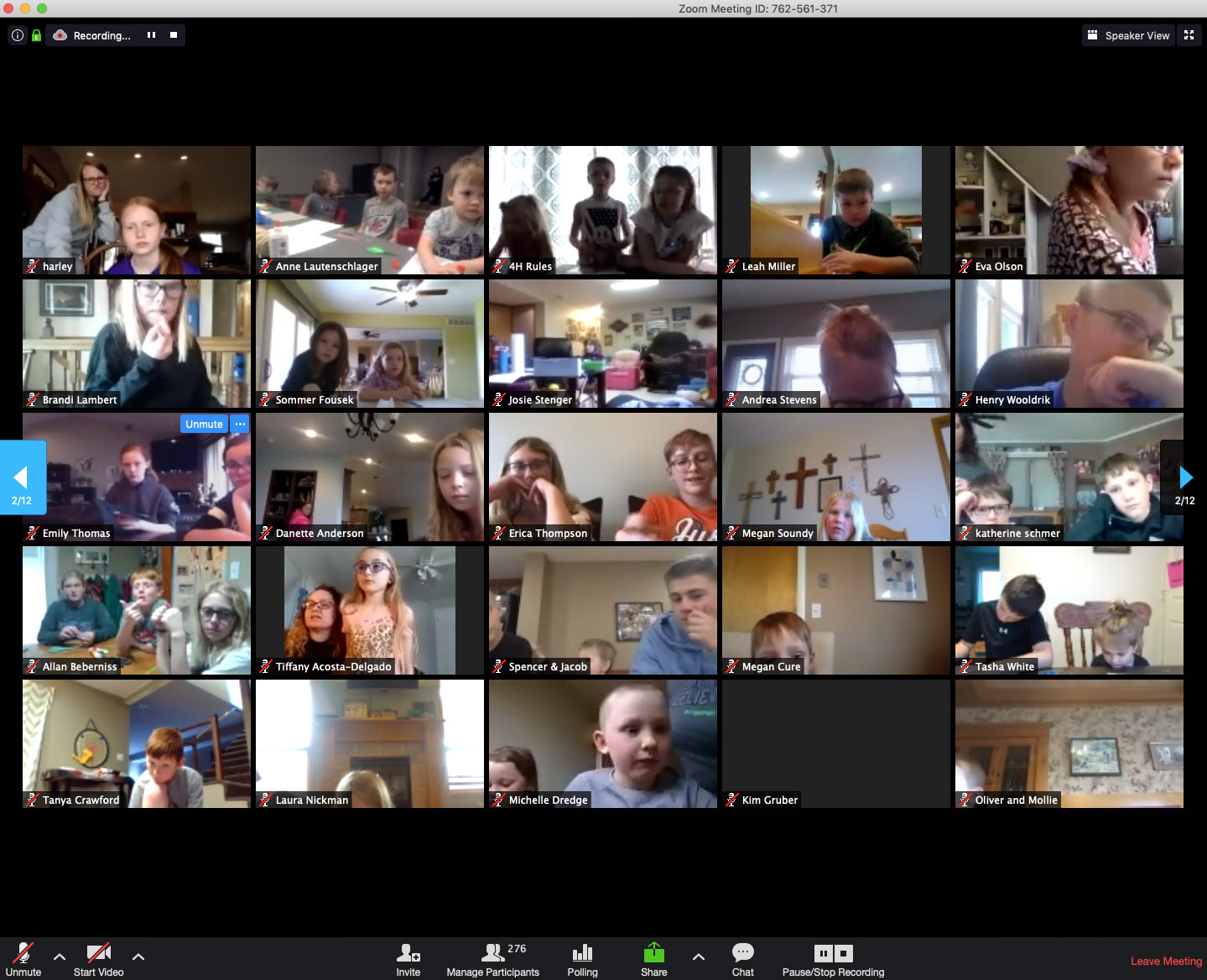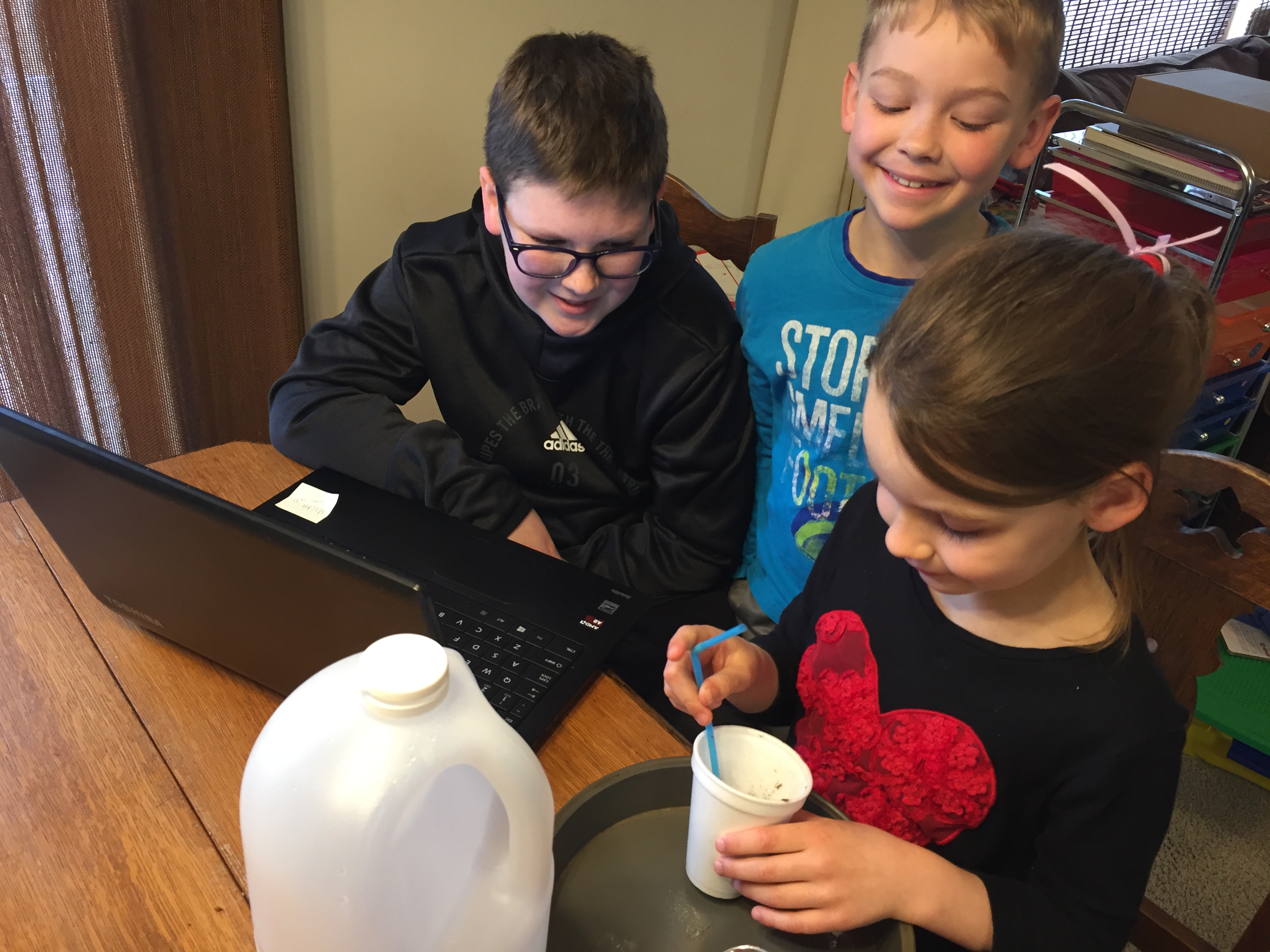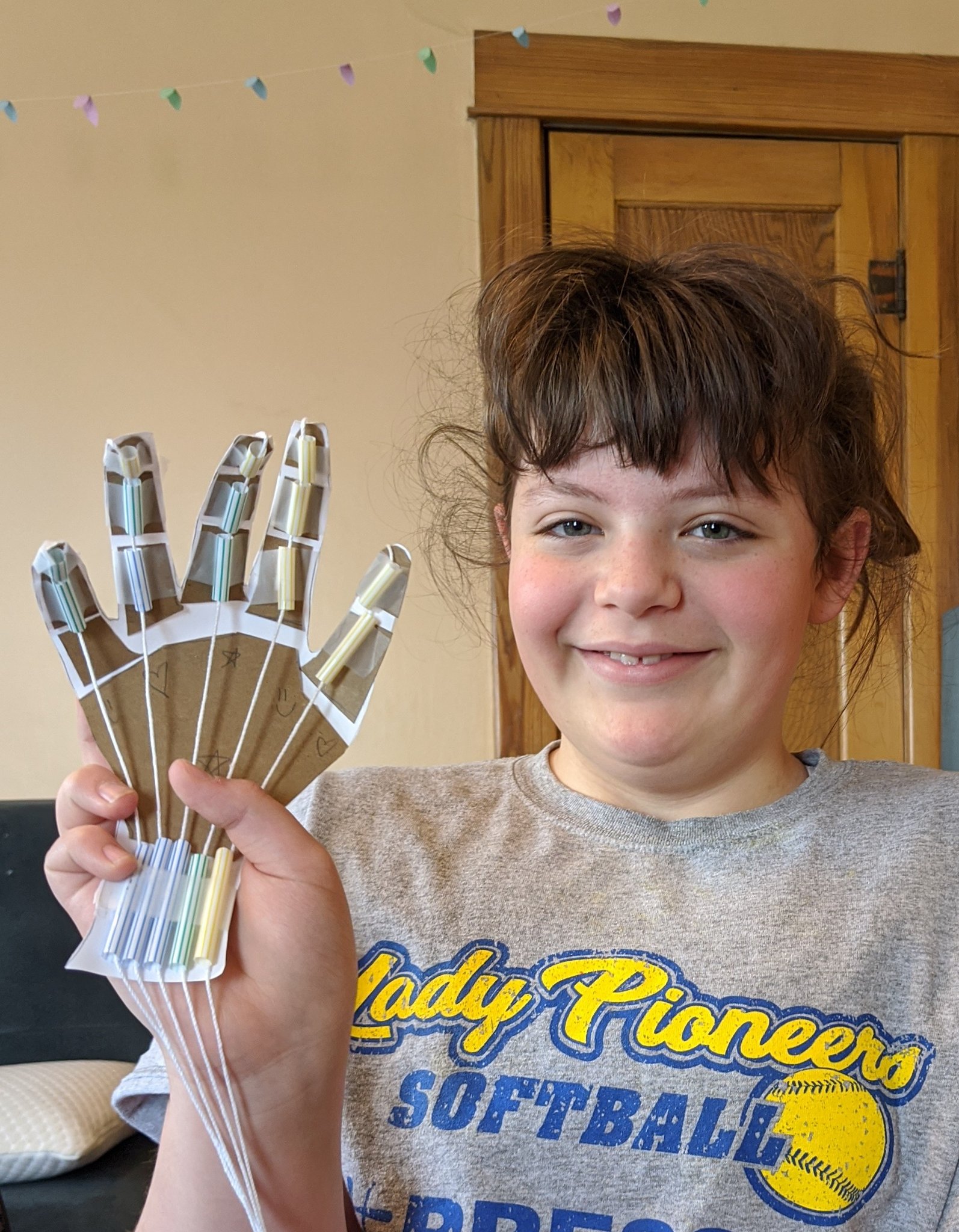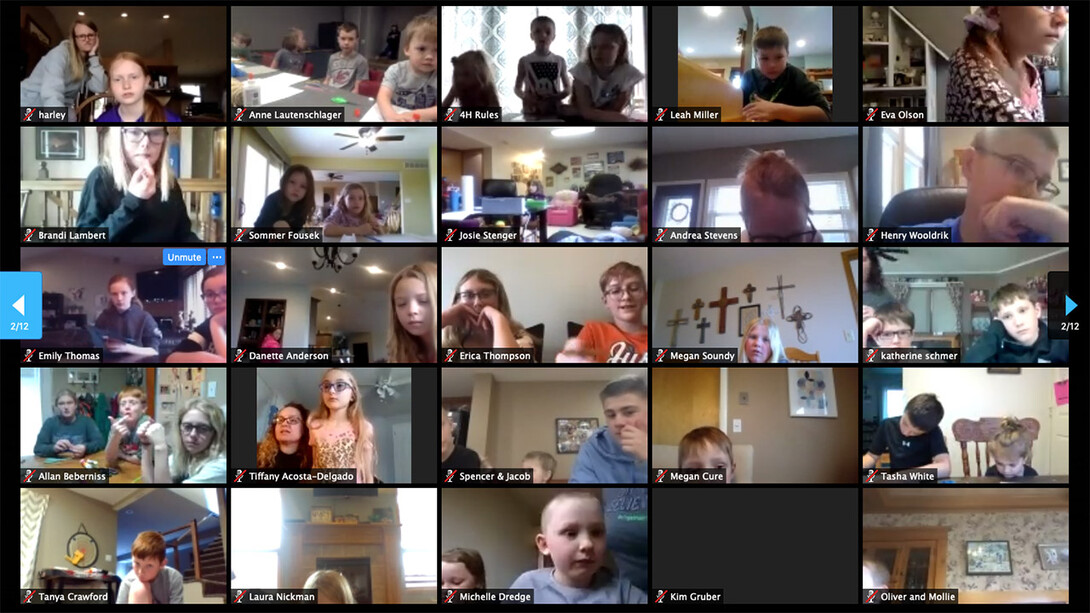
On March 17, Taylor Wickham, a 4-H extension assistant, led hundreds of youth in a kitchen science experiment focused on chemical reactions — the kind with vinegar and baking soda that is a staple at elementary school science fairs. To jazz it up, she added in some glitter.
The youth she led were from Grand Island, Nebraska City, Humphrey, Sidney, Bertrand and more than 30 other Nebraska communities, as well as four other states. Together, they followed Wickham’s lead via Zoom, an online videoconferencing tool. In all, youth from more than 200 locations across Nebraska and the country engaged in science while building glittery volcanoes, which Wickham called “glitter bombs.”
This was the first in a series of live videos that Nebraska 4-H plans to stream each Tuesday and Thursday at 2 p.m. for as long as schools remain closed to slow the spread of COVID-19. The series, called Living Room Learning, aims to provide fun, engaging, educational activities that families can complete together with supplies they probably already have on hand, said Kathleen Lodl, associate dean of Nebraska Extension.
“One of the things that we know is we try to meet young people where they are,” Lodl said.
For families across Nebraska and throughout the United States, where they are now is at home, and in many cases, parents are trying to balance their own work obligations with their children’s learning. Nebraska 4-H has a strong history of interacting with youth in ways that build life skills such as communication and leadership, while also educating them in content areas including STEM, healthy living and entrepreneurship, Lodl said. In addition, 4-H extension educators across the state already have relationships with 4-H clubs, schools and parents. Those educators have an additional arsenal of activities they can use to engage youth throughout Nebraska, said Tracy Pracheil, 4-H extension educator.
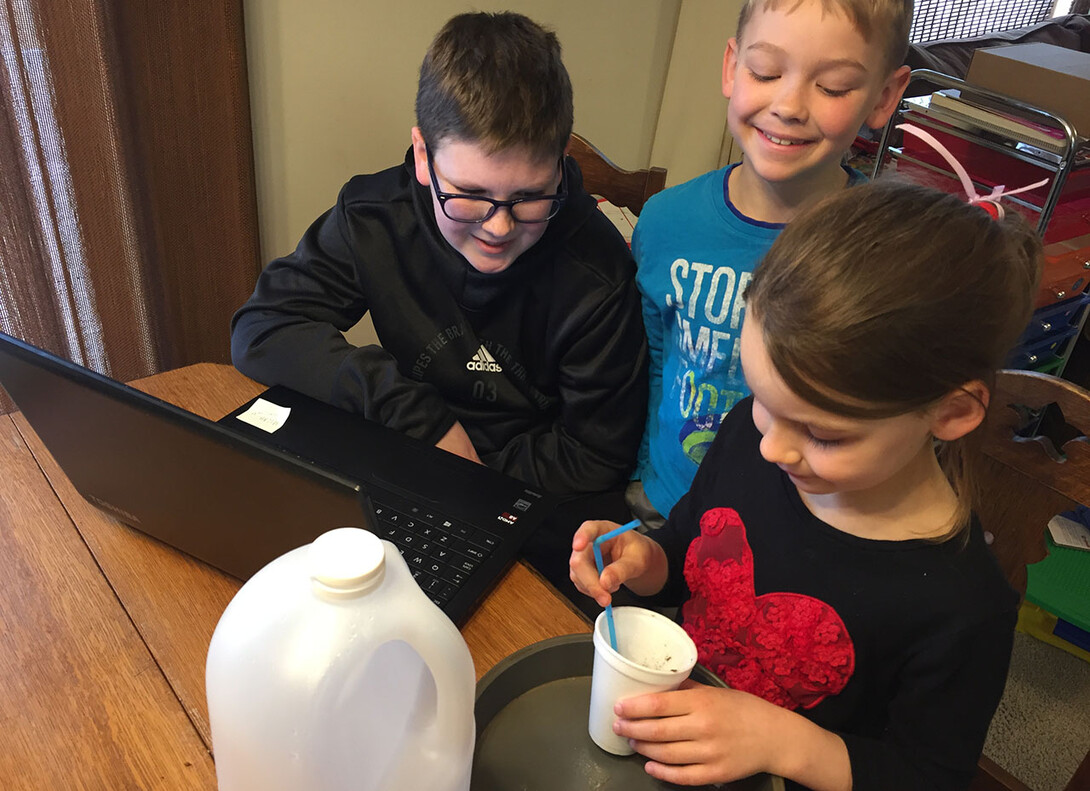
“Nebraska 4-H is set up really well for this,” Pracheil said.
4-H educators planned for just a week before launching the first video, Pracheil said. They shared a post on Facebook inviting families, regardless of whether they had participated in 4-H before, to tune in less than 24 hours before the first livestream.
“We were blown away by the response,” Pracheil said. “I think it shows that Nebraskans value education, and they value quality learning experiences.”
Youth who took part in the livestream were able to see the other participants and use a chat box to discuss the project and share other information, such as where they were from. The young learners seemed to love seeing other participants in their homes across the state and beyond, Pracheil said.
“We could see all of these little boxes filled with kids and their families,” said Pracheil, who helped run the livestream during the first video. “It was a neat way to bring together youth from across the state.”
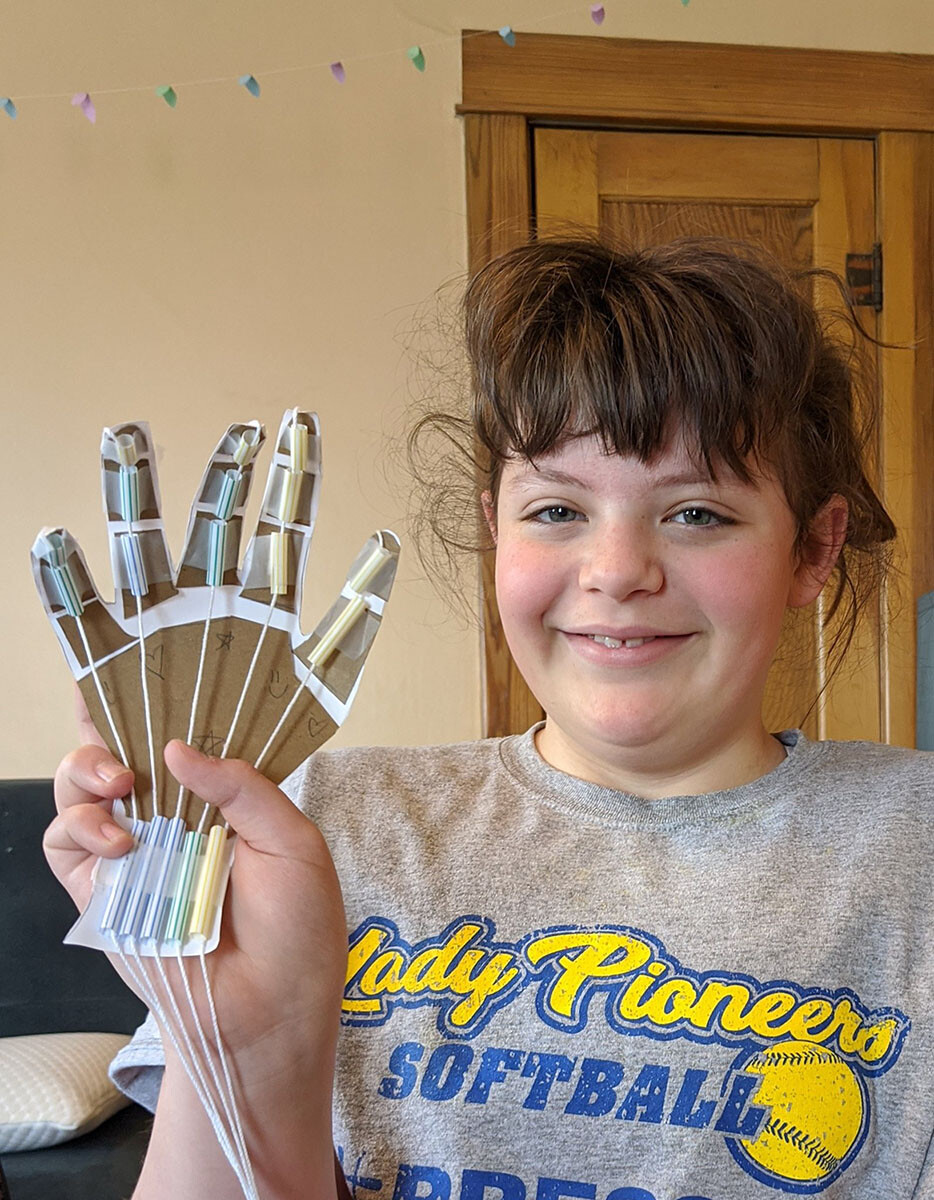
Living Room Learning is geared toward third- through fifth-graders, Pracheil said, though younger and older kids can participate, too. While Pracheil was helping run the livestream for the first video, her 12-year-old guided her two younger children through the activity.
On March 23, Nebraska 4-H launched the Boredom Buster Challenge, a live video series geared toward middle schoolers and focused on entrepreneurship. Like Living Room Learning, the Boredom Buster Challenge encourages participants to take advantage of the opportunities for interaction offered through the livestream as they learn about the fundamentals of entrepreneurship and challenge themselves to think of alternative uses for common household items, among other activities.
“I think it’s very real-world and very applicable,” said Andy Larson, 4-H extension educator. “It’s a cool way for students to stay engaged when they may not have school.”
The Boredom Buster Challenge will take place at 2 p.m. Central Time on Mondays and Wednesdays.
Forthcoming Living Room Learning livestreams will focus on healthy living, STEM and citizenship, among other topics, Pracheil said. One activity will guide youth in making marbled paper, which they’ll turn into a card to send to someone in their community.
As 4-H leaders plan activities, they ensure that the four “H’s” — head, heart, hands and health — are represented, and that each lesson fosters creative thinking and independence.
“Adaptability is a big part of what we try to teach and a skill that we try to grow,” Pracheil said.
That spirit of adaptability also allowed Nebraska 4-H to develop and launch two online learning programs as soon as educators saw a need.
“We have lots of ideas,” Pracheil said. “We’ll figure it out as we go.”
